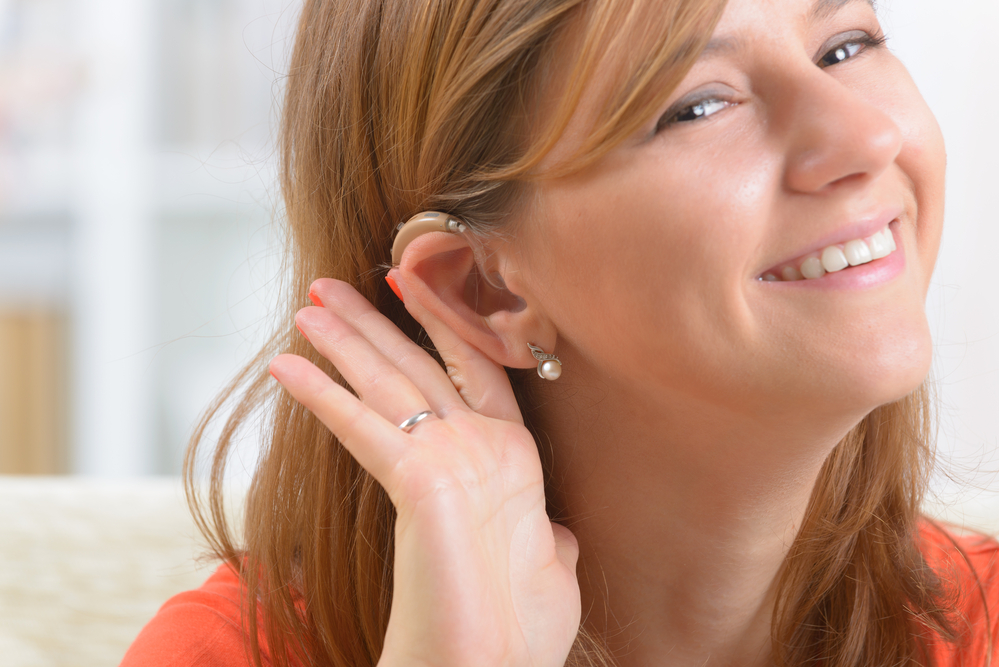Hearing loss is one of the most common health issues in the U.S – close to 37.5 million adult Americans are currently experiencing some form of hearing loss. In terms of treatment, hearing aids are the ideal method. However, the cost of hearing aids can be an issue for some. Because of this, people often seek out more budget-friendly alternatives to hearing aids like hearing amplifiers.
Although these cheaper hearing devices may be a solution for people with minor hearing challenges, they are not an effective form of treatment for hard-of-hearing individuals and can even be harmful. It is vital to do your research and consult a medical professional before committing to a treatment decision for your hearing loss.
Are you considering buying a hearing amplifier? We want to bring you the facts and help explain why hearing amplification devices should be avoided as a form of treatment.
What is the difference between a hearing aid and a hearing amplifier?
Hearing Amplifiers
Do ear amplifiers really work?
Hearing amplifiers are designed to help people with normal hearing hear far away or quiet sounds. So, yes. Hearing amplifiers work when they are used for their intended purpose. However, they should never be used as a form of treatment for hearing loss.
Hearing amplifiers magnify all sounds within a given radius. Meaning all sounds become louder when using an amplifier, not just the sounds you have trouble hearing. Therefore, the root of the problem persists when people use hearing amplifiers to treat their hearing loss. In comparison, hearing aids are specifically made for those with hearing loss. Hearing aids are also specially designed to optimize the sounds you have difficulty hearing instead of amplifying all sounds in general.
Another problem is that no consultation is needed to purchase and use a hearing amplifier. This means you miss out on the guidance of a medical expert if you decide to buy a hearing amplifier over the counter. An audiogram conducted by a healthcare professional is necessary to diagnose hearing loss properly. Failing to consult a professional can further deteriorate your hearing and could mean the difference between mild and severe hearing loss.
Do hearing amplifiers damage your hearing?
Yes, using a hearing amplifier as a treatment for hearing loss can cause damage in the long run. Hearing amplifiers amplify all sounds within a given radius, even those you don’t want to hear. Because the manufacturing process of these devices is not regulated like hearing aids, hearing amplifiers can deliver sound at a level that causes further damage to your hearing. In addition, the design of the ear insert can often push earwax deeper into the ear canal, creating impacted wax that needs to be medically removed. Lastly, since many people purchase hearing amplification devices without the advice of a medical specialist, they often miss out on vital information that could prevent further damage to their hearing.
Hearing Aids
First things first, let’s learn about the basic types of hearing aids and why they are considered to be the “gold standard” for treating hearing loss.
Types of hearing aid
There are many kinds of hearing aids used to correct varying levels of hearing impairment. To help give you a general frame of reference, we’ll list the two basic styles here. Depending on your specific treatment plan, a different variation of these models might be prescribed to you.
In-the-ear or ITE hearing aid
These aids are worn in the ear canal and are custom-fit using an impression that your hearing care professional takes during your hearing aid consultation.
Behind-the-ear or BTE hearing aid
These aids sit behind or on top of the outer ear with tubing that directs sound into the ear canal using a custom earmold that doesn’t block the entire ear canal opening.
Why are hearing aids the best treatment option?
Hearing aids are Class 1 medical devices regulated by the FDA, certifying them as reliable treatment. In addition, hearing aids are only administered by hearing care professionals, which ensures that the device is fitted correctly and is functioning efficiently.
Hearing loss is experienced differently by everyone. Therefore, any hearing treatment needs to be designed so that sound is processed and fine-tuned to sufficiently treat your unique impairment. Because of this, there is no “one-size-fits-all” approach to treatment. Working with a hearing health professional guarantees that your hearing aid and treatment plan caters to your specific needs and lifestyle.
Ultimately, even basic hearing aid designs involve highly-sophisticated technology with sound processing strategies that have been researched and tested to give people with hearing loss the best quality of sound.
Got questions? We’d love to hear from you!
To receive the best care possible, you need to consult a hearing professional, like Tim Harmon at Purchase Ear Technology in Paducah, who can provide you with legitimate medical technology. Before you purchase any treatment for your hearing loss, we recommend consulting with a reputable hearing care provider who can help you find the perfect hearing solution for you.
If you think you are experiencing some level of hearing loss, give Purchase Ear Technology in Paducah a call today at (270) 558-3996. We are conveniently located at 2008 Broadway St in Paducah, KY. At Purchase Ear Technology, you are more than a patient. YOU ARE FAMILY!
More posts that may be of interest to you:
What Are The Best Hearing Aids For Me?
Adjusting To New Hearing Aids At Work
5 Questions We Will Answer At Purchase Ear Technology In Paducah










